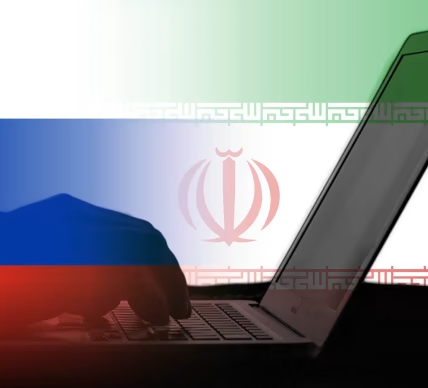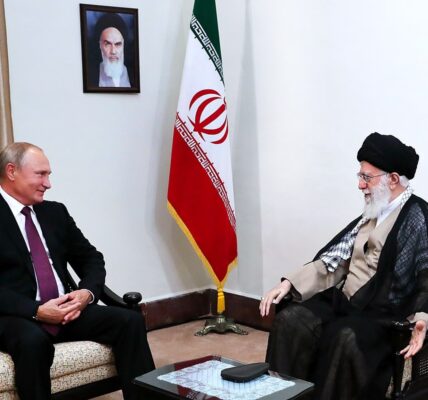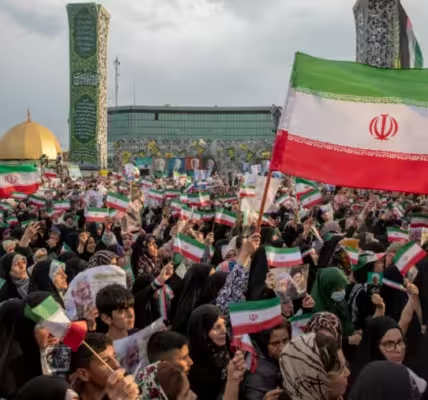
Just two days before Israel’s pre-emptive strike on Iran, a United States (US) congresswoman, Senator Elise Stefanik, wrote a letter claiming that “South Africa’s increasing alignment with Iran, an avowed sponsor of terrorism and antisemitism, poses profound ethical and geopolitical questions.”
In her letter to Robin Vince, the chief executive of the Bank of New York Mellon Corporation, known as BNY, she said, “The country’s diplomatic, ideological, and financial ties to Iran exacerbate these concerns.” Soon after the strike, the South African government condemned Israel’s attack on Iran.
Michael Walsh, visiting scholar at the Center for Middle Eastern Studies at the University of California, responded to Stefanik’s letter, saying, “The Trump administration has made it a strategic priority to pursue a new path toward lasting peace in the Middle East.” Therefore, he said, “the Trump administration is willing to take exceptional actions against independent states that undermine US national security and foreign policy interests.”
Stefanik’s letter, which the SA Jewish Report has a copy of, called on BNY to “review and disclose the full extent of its financial involvement with [South African telecommunications company] MTN Group and its Iranian affiliates”.
Stefanik wrote that she was “deeply troubled” by the bank’s sponsorship of MTN through its American Depository Receipts (ADR) programme because recent reports and ongoing litigation have “revealed MTN Group’s extensive ties to Iran’s Islamic Revolutionary Guard Corps and the facilitation of funding and support for Iranian-sponsored terrorism”.
MTN Group’s independent non-executive chairperson is Mcebisi Jonas, who was recently appointed by President Cyril Ramaphosa to be South Africa’s special envoy to the United States. He has chosen to continue his MTN role alongside his envoy position, according to the South African government.
BNY’s ADR programme offers customers the chance to purchase stock in MTN Group. But Stefanik claimed that MTN Group owns 49% of Irancell, Iran’s largest mobile operator, which “US authorities and courts have linked directly to terrorist activities that resulted in injury and death of American servicemembers and civilians”.
“The US District Court for the Eastern District of New York recently affirmed claims against MTN under the Anti-Terrorism Act, marking a significant legal precedent confirming MTN’s complicity,” Stefanik wrote.
However, in a statement to the SA Jewish Report on 17 June, MTN Group said, “The New York court has not confirmed MTN Group’s complicity in anything, and no final ruling has been made.”
It said that since 2006, MTN Group had held a minority investment in Irancell, “which isn’t under MTN Group’s operational control. When US sanctions were re-imposed against Iran in May 2018, MTN Group ensured strict adherence to global sanctions regulations and maintained legal and ethical compliance across markets. We have not deployed any capital into the business, and have not extracted capital or dividends.”
Stefanik said that by allowing American investors to invest in MTN through its ADR programme, the bank “directly exposes the American public to financially propping up a company complicit in funding terrorism and antisemitic activities”.
But MTN said it is committed to “respecting and protecting human rights within the markets we serve and our broader sphere of influence. Our digital products and services play a critical role in advancing and protecting human rights. We strive to provide these products and services in a manner that does not impede or infringe on the rights of people.”
Stefanik called on BNY to cease sponsoring MTN Group’s ADR programme until a comprehensive investigation by US regulatory authorities is concluded; to co-operate fully with US government investigations into “MTN’s alleged violations of sanctions and support for terrorism”; and to implement enhanced due diligence and compliance measures to prevent future sponsorship of “companies that pose risks to US national security interests”.
The MTN statement said that in 2020, MTN Group announced its intention to exit the Middle East. “Across all operations, MTN has enhanced due diligence processes and risk assessments to ensure compliance with international trade and sanctions regulations,” it said.
The escalation of conflict between Israel and Iran “changes the context for the MTN case”, Walsh said. “The Trump administration and members of Congress will want to aggressively target global partner ecosystems of Iranian government agencies and Iranian proxies. That will not only drain the power bases of the remaining Iranian hardlines and Iranian proxies, it will frustrate the rebuilding of their institutions. Ultimately, that will put an even bigger target on MTN.”
Relationships between Iranian hardliners and Iranian proxies and the African National Congress and the South African government “pose a serious risk to US-South Africa relations”, says Walsh.
This is because those relationships not only make South Africa an “obstacle” to peace in the Middle East, they also show that “the government of South Africa stands with the adversaries of the US and its allies”.
But MTN Group emphasised that “any suggestion that President Cyril Ramaphosa has improperly benefited from his time at MTN Group [which Stefanik suggested], is false and misleading. MTN Group’s business decisions are separate from the South African government’s foreign policy.”
Walsh says the Trump administration cares only about “whether the current actions of the South African government are aligned with US national security and foreign policy interests. In the United States, there is strong bipartisan agreement that they are not.”
The Trump administration is therefore “committed to imposing harsh consequences on South Africa”, says Walsh. “The Trump administration is unlikely to back down until it believes that the South African government is no longer standing with the adversaries of the United States and its allies.”
The Stefanik letter shows that “any relationships between South African entities and the adversaries of the US and its allies pose a serious risk to Western multinational companies doing business in South Africa”, Walsh says. “Such high-profile political actions could lead Western multinational companies to decide that it’s not worth the reputational risk of doing business in South Africa. If that were to happen, it would have a huge negative impact on the South African economy.”
Walsh concludes by noting that the letter shows how “unwise” it was for Ramaphosa to appoint Jonas as special envoy to the US. “That action is what thrust MTN to the centre of the debate over US-South Africa relations.”
A BNY spokesperson told the SA Jewish Report: “We take these matters seriously and are reviewing Representative Stefanik’s inquiry carefully.”



































































































































































































































































































